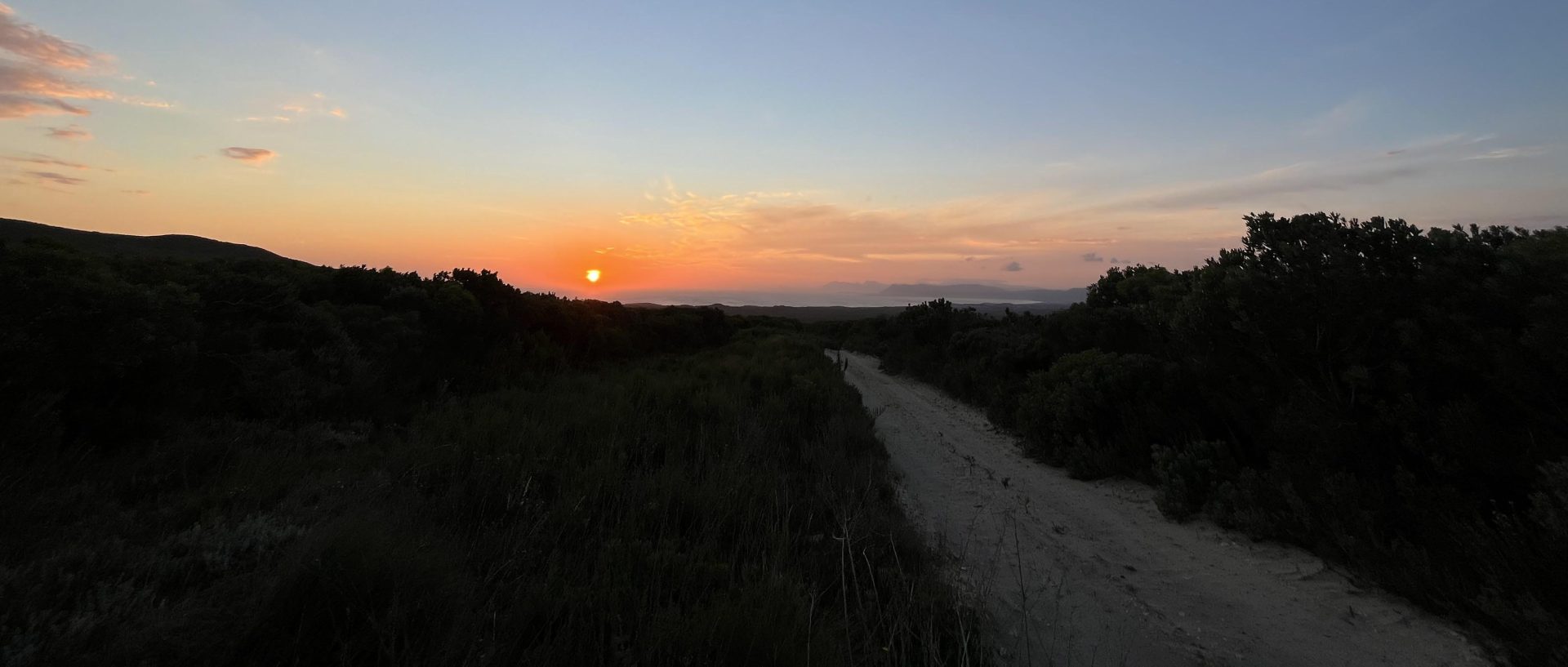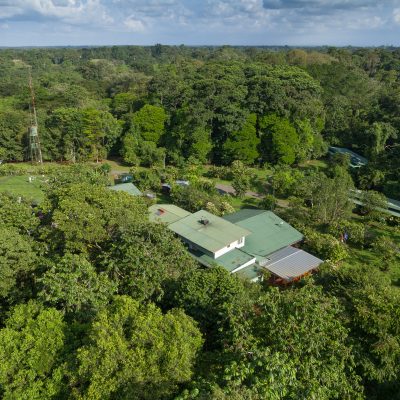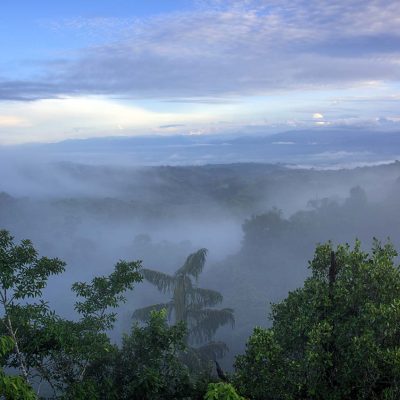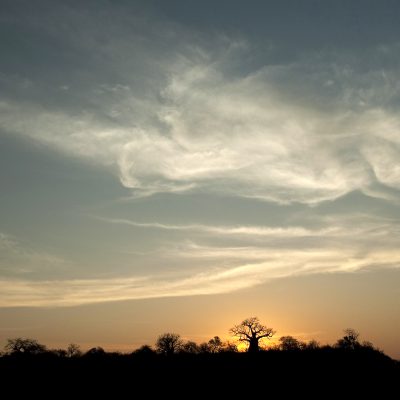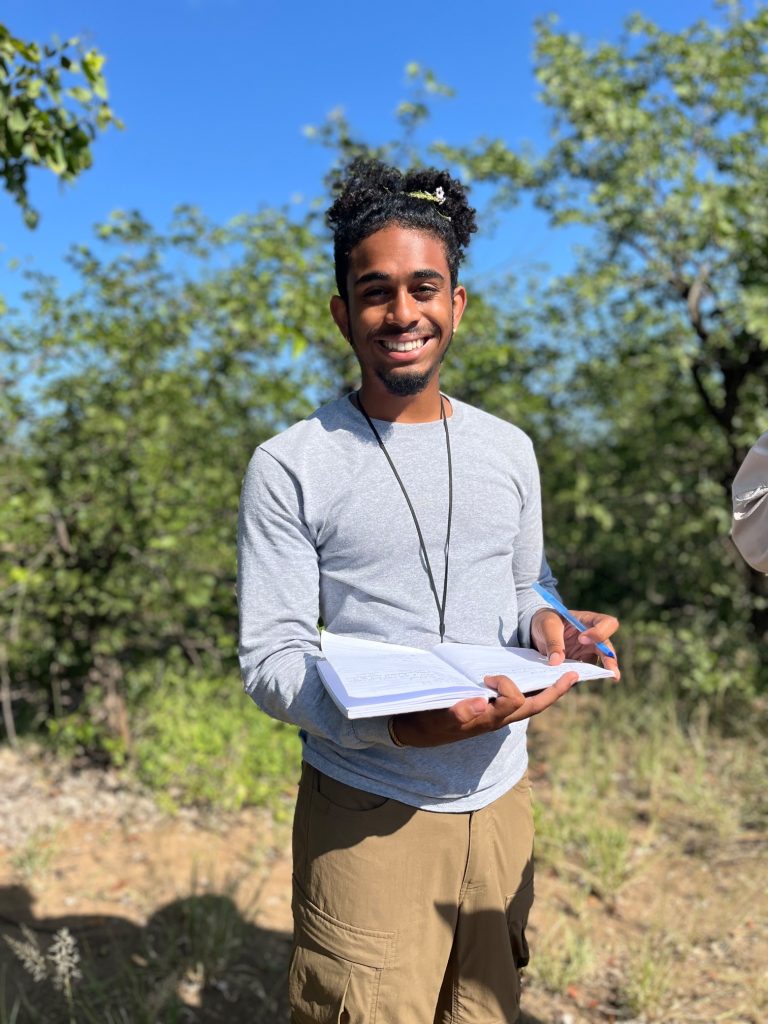
Major: Biological Sciences
Home School: Cornell University
OTS Program: African Ecology and Conservation
Spring 2024
Nigel Williams
“The absence of the internet and technology during those days allowed me to fully embrace the present moment, indulging in the simple joys of reading, writing poetry, and connecting with my surroundings.“
From the moment I received my acceptance letter from Cornell, I knew I would study abroad during my college time as part of my wildlife conservation journey. It wasn’t just a passing thought; it was a dream nurtured by my mother, who had her own amazing study abroad experience during her college years. Her encouragement and my passion for animals made me realize the value of exploring different cultures and ecosystems through study abroad.
What drew me to OTS was its unwavering commitment to immersion and research. Unlike other programs, OTS offered a unique opportunity to dive deep into savanna or tropical environments, allowing for an unparalleled level of engagement with wildlife and ecosystems.
Moreover, OTS’s research-based approach resonated with my academic and professional goals. By participating in field-based research projects, I knew I would not only gain valuable insights but also develop the skills necessary for graduate school and beyond. OTS presented me with the chance to transition from a passive learner to an active contributor to the conservation of our planet’s natural wonders.
Reflecting on my decision to study abroad with OTS, I am grateful for the support of my mother and the invaluable experiences that have shaped my journey thus far. Her words, “It’s worth it,” echo in my mind as I navigate through the challenges and opportunities that come with pursuing my passion for wildlife conservation.
My most unforgettable moment during my OTS study abroad experience was undoubtedly my homestay in HamaKuya. Stepping into their world, so different from the busy streets of New York City, was an amazing immersion into their way of life and cultural heritage. Interacting with the children, joining in the preparation of meals alongside our house mother, and learning the Tshivenda language were experiences that left an undeniable mark on me.
The absence of the internet and technology during those days allowed me to fully embrace the present moment, indulging in the simple joys of reading, writing poetry, and connecting with my surroundings. It was a refreshing break from the digital noise of modern life.
Leaving our homestays was bittersweet, as we bid farewell to the villagers whom we had grown close to in such a short span of time. Despite the short time, I felt a genuine bond with them. The memories of those days in HamaKuya continue to resonate with me, serving as a reminder of the richness and beauty of cultural diversity.
If you’re considering joining an OTS program, I highly encourage you to take the leap. From my personal experience, it was an eye-opening journey that broadened my horizons in ways I couldn’t have imagined. The opportunity to immerse yourself in different places and cultures, offers invaluable insights and personal growth. You’ll not only learn about the environment and ecosystems but also about yourself and the world around you.
OTS programs provide a unique blend of academic rigor, hands-on fieldwork, and cultural immersion that fosters a deep understanding of the subject matter. Whether you’re studying biology, ecology, or any related field, these programs offer unparalleled opportunities to engage with nature firsthand and contribute to meaningful research.
Additionally, the sense of community within OTS is remarkable. You’ll be surrounded by passionate educators, researchers, and fellow students who share your interests and are eager to learn and explore together. The connections you’ll forge during your time in the program can last a lifetime.
So, if you’re ready to embark on a transformative journey of learning, discovery, and adventure, I wholeheartedly recommend joining an OTS program. It’s an experience that will leave a lasting impact on both your academic and personal growth.
My capstone project centered on an investigation into the ecological implications of mammalian herbivory on the critically endangered Adenium swazicum. This study was particularly significant as it addressed a knowledge gap within the scientific community, where limited prior studies had explored this specific interaction. Our team dedicated extensive time and effort to meticulously observe and document herbivory patterns on Adenium swazicum plants using camera traps. Furthermore, we conducted a thorough review of existing literature to support our findings within the broader ecological framework. With this research, we hope to develop the foundation for a long-term monitoring project. By laying the groundwork for ongoing observation and analysis, we aim to contribute to the conservation and management efforts aimed at protecting the Adenium swazicum population
Looking ahead, my career aspiration is to become an international wildlife conservationist, with a dedicated focus on endangered species and socio-ecological issues. Through my work, I hope to contribute to the preservation of biodiversity and the protection of vulnerable animal populations around the world. By addressing the complex relationship between human activities and the natural environment, I aim to promote holistic practices that ensure the coexistence of wildlife and local communities.
I believe that pursuing a PhD in wildlife conservation is essential to realize my ambitions and develop the expertise needed to develop my own conservation projects. With a PhD, I envision myself leading interdisciplinary research initiatives that bridge the gap between scientific knowledge and conservation action. I aspire to collaborate with local communities, governmental organizations, and conservation NGOs to implement evidence-based conservation initiatives that address pressing environmental challenges and promote biodiversity conservation.

